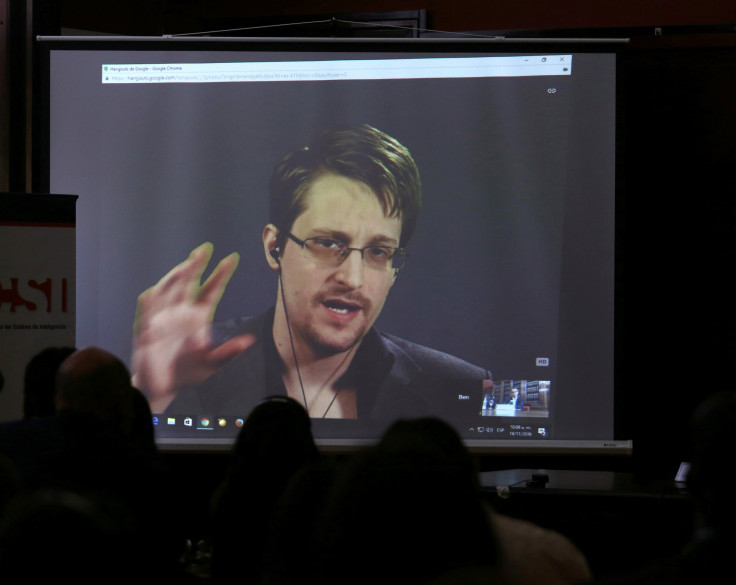Edward Snowden Latest: NSA Whistleblower's Newest Mission Is Protecting Journalists From Spies

Amid speculation over whether Russia will hand over Edward Snowden to the United States, the National Security Agency whistleblower said he is committed to protecting journalists and their sources from spies, according to an interview conducted by Wired Magazine this week.
“Watch the journalists and you’ll find their sources,” Snowden was reported as saying by Wired. “So how do we preserve that confidentiality in this new world, when it’s more important than ever?”
Snowden, who is currently exiled to Moscow, has been the president of the San Francisco–based nonprofit Freedom of the Press Foundation (FPF) since last year. He joined the group on the request of journalists Glenn Greenwald and Laura Poitras, who were the first to receive Snowden’s leaks, and was soon elected its president. He does not take a salary for the position and has given the organization over $60,000 from his own earnings, the magazine reported.
“No one has more practical expertise when it comes to whistleblower and journalist communications,” Trevor Timm, the FPF’s executive director, reportedly said. “It was the perfect fit.”
The Snowden-led group aims at equipping the media to work without the threat of state-sponsored hackers or government surveillance to carry out the best possible form of investigative journalism. FPF is working on the development of a number of security upgrades for reporters, which will keep their information and sources safe from spies.
“Newsrooms don’t have the budget, the sophistication, or the skills to defend themselves in the current environment,” Snowden told the magazine through an encrypted video chat from Moscow. “We’re trying to provide a few niche tools to make the game a little more fair.”
An example of the group’s early success is the development of SecureDrop — “an open-source whistleblower submission system that media organizations can install to securely accept documents from anonymous sources.”
Managed by FPF, the system is currently being used by some major media outlets like the Guardian, the New York Times, BuzzFeed, the New Yorker, the Washington Post and the Associated Press, according to its website.
Snowden’s name did not figure in the list of 1,715 people granted commutations by former president Barack Obama before he left office. According to reports, he is not expected to receive a pardon or commutation even under President Donald Trump, who once called the whistleblower a “terrible guy.”
However, this does not seem to deter Snowden from his mission to “protect” the press.
“We can’t fix the surveillance problem overnight,” Snowden told the publication. “But maybe we can build a shield that will protect anyone who’s standing behind it.”
© Copyright IBTimes 2025. All rights reserved.






















